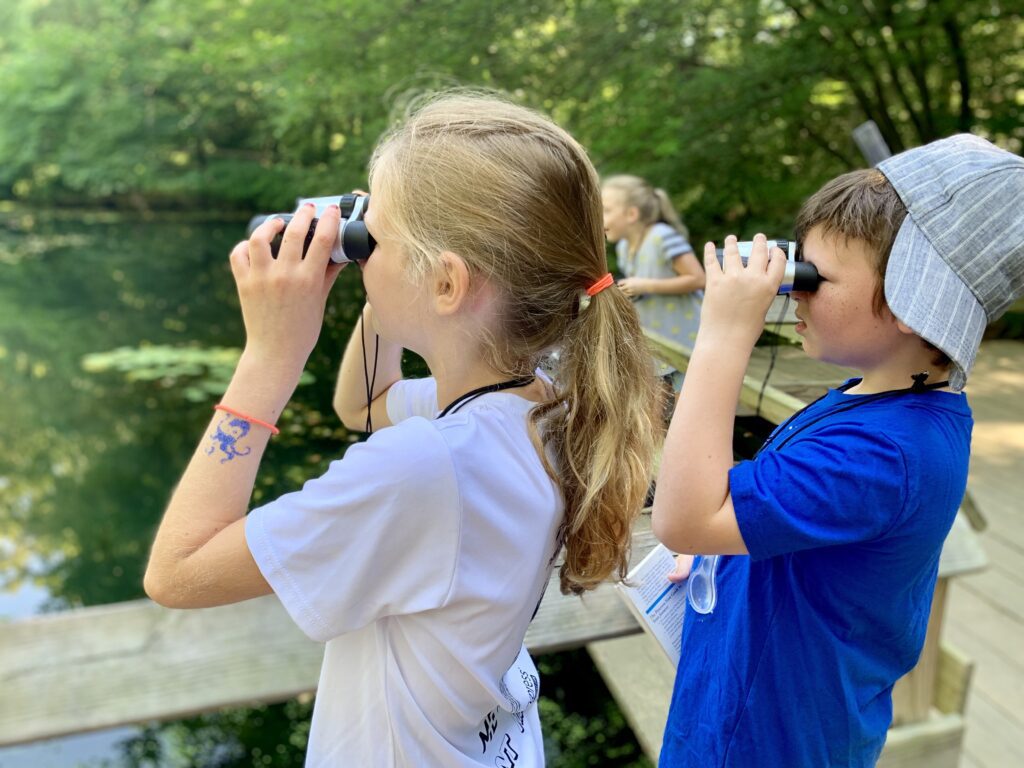I have shared my experiences working at camp on many occasions. It was one of the transformative experiences that shaped who I am today. But what I enjoyed almost as much as working at camp was visiting other camps. I represented the American Camp Association as an accreditation visitor for over a decade. What does it mean to be a visitor? Well, if you ask your children who attend camp, I’m the “inspector” that once every three years comes in to make sure their beds are made, and cabins are spotless. I wasn’t an inspector, even though I used to tell campers and staff the inspectors wanted to see that each set of bunks was sleeping with the top and bottom person alternating. As a visitor, I acted as a mentor and sounding board for camp directors to be sure they were achieving industry standards while ensuring that camps care about the “successful development of children”. If you have a few spare hours I could go into great detail about each of the approximately 200 standards.
I started participating as a visitor when my own camp was being accredited. For a camp director, this is a fairly exhaustive but meaningful process. There are many things within the accreditation guide which will challenge your own thinking and maybe even change how you operate. After a few accreditation visits and speaking with the visitors, I wondered what I could learn from other camps. Over the years I have had the pleasure of visiting several Jewish day and residential camps. I have seen spectacular programming and witnessed the amazing power of camp on the lives of young people. The one major takeaway from my visits has been those camps who take the standards seriously reap the benefit of happy and safe campers while those who do not put energy towards it are usually heading down a dangerous and scary path. I wanted to share this takeaway because it reminds me so much of Moses’ words to the Israelites at the opening of this week’s parsha.
This week’s parsha, R’eih, begins with Moses telling the people, “I place before you today a blessing and a curse”. The blessing (or reward) will come when they follow God’s commandments and if they do not follow God’s commandments then they will be cursed. I don’t want anyone to think I believe the ACA standards are God’s commandments. I do however liken the rewards and consequences to the success of a camp to uphold the standards. As I mentioned before success brings happy and safe campers. It also gives the camp access to an ACA accreditation which in turn is shared with current and prospective families which will hopefully continue to come to said camp because it’s a great place to be. The camps that don’t get accredited are less likely to be attended because they do not have a seal of approval. Moses does get into minutia regarding the temple, sacrifices, and festival holidays but I believe the point so much simpler. The bottom line is we get to choose whether or not we follow God and the commandments. You have the choice to be diligent or not. If you take the time to put forth the effort you will reap the benefits. Author Daniel Kimmel stated, “There are no halacha squads coercing people to obey. There are, of course, consequences for following the wrong path and we should strive to do what is right and just, but our actions become meaningful precisely because we get to choose to do them. We are not automatons living out pre-ordained lives. We are people with free will, who have to learn what God wants from us and then try to meet those high standards. Lower animals operate on instinct. We have to decide for ourselves.”
There are also those visits which seem like they are going South fast but the directors show they do care and want to improve what they are doing. It’s incredible to visit a camp one year and nothing seems to be going right, but three years later they are not only exceeding the standards but excited about the progress that they are making. These directors r’eih (see) it as their responsibly to improve and strive for a better camp. The Talmud says (Kiddushin 40b) that every person should imagine that the entire world stands on judgement and that the scales between good and evil are equal. One’s individual actions can tip those scales one way or the other. That’s an enormous responsibility. Where do we start?
The Torah itself alludes to the answer: the way you start; the first step in achieving a better society and community is by seeing. You have to wake up and be aware. You have to look up and look at the world you live in, look at yourself. R’eih – you must see. You can’t look down at your feet and just see mud. You can’t just look at the places in your life where you feel stuck. You can’t look at this often messed up world and not see how you are implicated. You can’t expect that someone else is going to fix it. But you also can’t just focus on the negative and the bad. Despite its ominous-sounding warning about blessings and curses, parashat R’eih is ultimately about hope. It’s about seeing – each and every one of us – the possibility of the blessing. It’s about seeing that choice in front of us and struggling for the blessing.
Shabbat Shalom,
Danny Glassman

